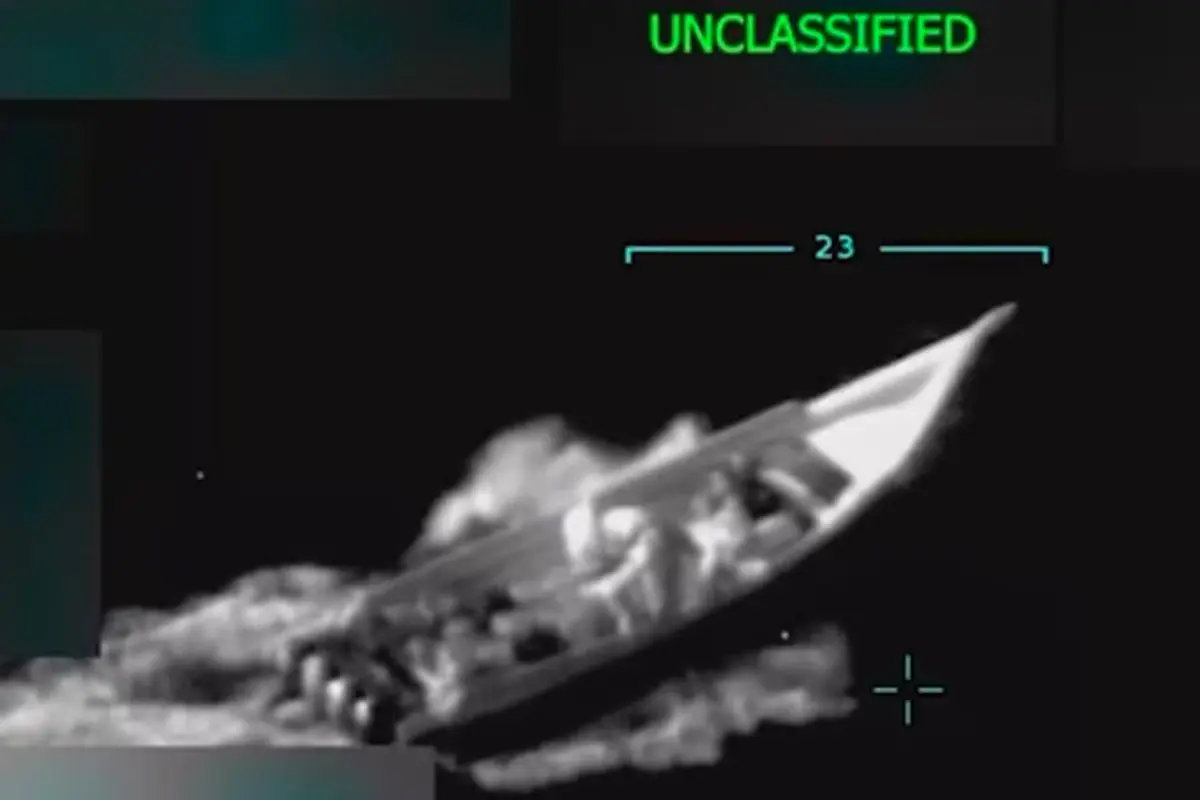Venezuela: US Strikes Two More Boats in the Southern Caribbean as Colombia’s Petro Decries ‘Oil Greed’

Caracas, October 20, 2025 (venezuelanalysis.com) – The Trump administration conducted new lethal strikes in Caribbean waters as part of a self-declared anti-narcotics mission and military pressure campaign against Venezuela.
US special forces bombed a semi-submersible vessel Thursday, killing two of its crew members. The attack left two survivors who were later brought aboard a US warship.
The two civilians, from Colombia and Ecuador, were the first to survive in the series of US boat strikes in the southern Caribbean since early September. Their detention raised legal questions, but the White House sidestepped the issue by repatriating them to their home countries for detention and prosecution.
Colombian President Gustavo Petro confirmed on Saturday the arrival of the Colombian national, later identified as 34-year-old Jeison Obando Pérez, who reportedly arrived in critical condition. Bogotá stated that he would be prosecuted in accordance with the country’s legislation.
Ecuadorian authorities also confirmed that the second survivor was in their custody but offered no details on his identity or condition.
The targeting of Colombian and Ecuadorian nationals followed reports that two Trinidadians fell victim to a previous US strike, with relatives stressing that they had no ties to illegal activities.
In a social media post, Trump claimed the bombed vessel was “loaded up with mostly fentanyl and other illegal narcotics,” which would have cost 25,000 US lives had it reached its destination. He provided no evidence to back up the claims. There is no evidence that Venezuela is a source of US-bound fentanyl, which is usually synthesized in Mexico with precursors from China.
US forces have bombed at least seven vessels since early September in what officials termed the Southern Command’s “area of responsibility.” On Friday, Secretary of War Pete Hegseth announced the latest strike that killed three crewmen, taking the total of civilian casualties to at least 30.
Hegseth stated that the boat belonged to Colombia’s National Liberation Army (ELN), a decades-old insurgency designated by Washington as a terrorist group. Nevertheless, he did not disclose any evidence. The Trump administration has said it is considering attacks on land against alleged drug targets, specifically in Venezuelan territory.
In recent days, Petro has struck an increasingly critical tone of US operations in the Caribbean Sea following revelations of a mid-September attack against a Colombian boat. The attack killed Alejandro Carranza, whom Petro stated was a fisherman with no ties to narcotics smuggling. Colombian media traveled to Carranza’s village and spoke with relatives of the victim, who claimed he was not involved in drug trafficking.
The Colombian president added that the boat was adrift and sending distress signals, accusing the US of violating the country’s sovereignty.
“US officials have committed an assassination and violated the sovereignty of our territorial waters,” Petro wrote on social media. “We await the US government’s explanations.”
The remarks led to a fiery exchange with Trump, who accused Petro of not doing anything to stop drug production in the South American country and vowed to suspend cooperation on the matter. The US president vowed to impose harsh tariffs against Colombia, but a White House adviser downplayed the prospect.
Petro has further accused the Trump administration of being motivated by “oil greed” and using a purported fight against drug trafficking as an excuse to seize oil reserves in the Caribbean region, particularly in Venezuela.
Since August, the US has mobilized warships, aircraft and thousands of troops to the region in a self-declared anti-narcotics mission. Washington accused Venezuelan President Nicolás Maduro and other high-ranking officials of “narcoterrorism.” However, reports from the United Nations and the DEA found Venezuela to play a marginal role as a transit country in global drug trafficking.
US strikes have come under growing scrutiny, with experts classifying them as extrajudicial executions. US House Representative Adam Smith (D-WA) has reportedly called on the House Armed Services Committee to hold a hearing to examine the administration’s use of lethal force against drug trafficking suspects as opposed to interception and seizure procedures.
The US Senate is likewise preparing a vote to stop the administration from attacking Venezuelan territory. A prior effort to curtail further strikes in the Caribbean was narrowly defeated earlier this month.
The military campaign has also caused internal divisions to surface. US Navy Admiral Alvin Holsey announced his sudden departure as head of US Southern Command less than a year into the role. Anonymous sources told media outlets that Holsey had raised concerns about the mission and the attacks on the alleged drug boats.
For its part, the Maduro government has responded to US military threats with wide-reaching defense exercises and reinforced deployments along the Caribbean nation’s land and sea borders.
Caracas also convened an emergency meeting of the UN Security Council (UNSC) to denounce imminent prospects of a US armed attack and urged the body to determine the illegality of Washington’s unilateral and lethal military action. Venezuela has been backed by China, Russia and regional allies.
While Trump has not addressed the question directly, US foreign policy analysts have contended that the administration is escalating regime-change efforts against Venezuela. Last week, the New York Times reported that White House has greenlit CIA lethal operations in Venezuelan territory.
Edited by Cira Pascual Marquina in Caracas.
